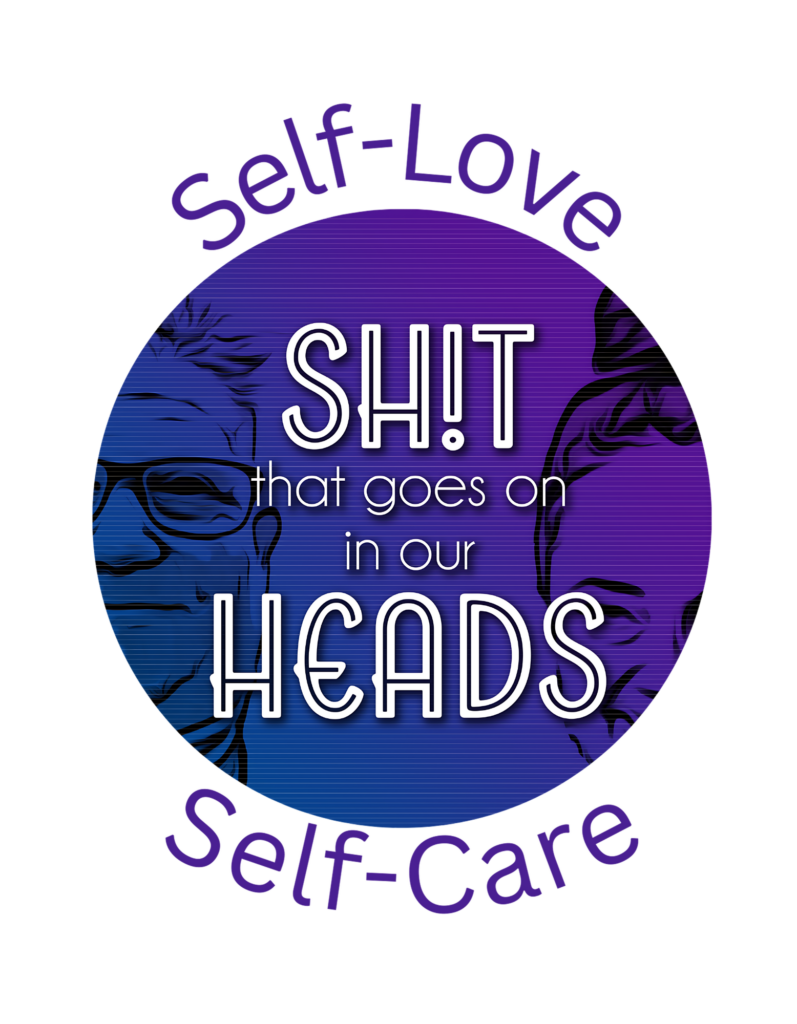In a world where mental health struggles often remain hidden behind closed doors, Gretchen’s podcast, “Sh!t That Goes On In Our Heads,” offers a refreshing and raw perspective on mental well-being. Born from a personal crisis on Christmas Day 2022, Gretchen’s journey from a place of darkness to creating a supportive, open space for others is both inspiring and courageous. This podcast is not just a platform for discussion but a beacon of hope, showing that even in our most vulnerable moments, we can find strength, connection, and healing. Join us as Gretchen shares her powerful story and the heartfelt mission behind her transformative podcast.
1. What was the turning point that inspired you to start the podcast “Sh!t That Goes On In Our Heads”?
The turning point for starting “Sh!t That Goes On In Our Heads” was deeply personal. It all happened on Christmas Day 2022 when I hit a real low and had a mental breakdown. I felt completely overwhelmed like I was drowning, and reaching out for help truly saved my life. That moment made me realize how many people struggle silently, just like I did. It inspired me to create a space where we could openly talk about mental health, share our stories, and remind each other that we’re not alone. It’s about turning our pain into something meaningful and helping others find hope, even in their darkest times.
2. Can you share more about your mental health journey and how it influenced the creation of your podcast?
My mental health journey has been anything but smooth—there have been highs and lows that I never saw coming. After that breakdown, I knew I couldn’t keep it all inside anymore. The podcast idea came from wanting to share the raw, unfiltered truth about mental health—the messy, uncomfortable parts that make us human. I wanted to create a space where people could listen and think, “Wow, I’m not alone in this.” It was about creating connection and understanding, one conversation at a time.
3. How did your best friend and manager support you during your mental breakdown, and how has their support shaped the podcast?
When I refer to Dirty Skittles as my “manager,” I use that term pretty loosely because I took a voluntary retirement just a few months after my breakdown. But honestly, she was so much more than that—she was my lifeline. Every day before work, we would call each other to laugh, and those moments set the tone for our days. She was instrumental in ensuring I was okay, checking in to see if I had what I needed each day. Her support was unwavering, even though she was shocked by it all. I looked and acted fine on the outside, but on the inside, I was just done. As an extrovert, I hid my depression well, and it made her feel bad that she hadn’t realized how much I was hurting. We are best friends, and I can’t imagine doing this podcast with anyone else but her.
4. What challenges did you face while starting and running the podcast, and how did you overcome them?
Starting the podcast was anything but easy. We faced all kinds of challenges—technical issues, finding our voice, and the fear of being so open about our mental health. But we kept going because we knew how meaningful these conversations were. We learned as we went, leaning on each other for support and embracing imperfections. It was all about staying true to our mission and reminding ourselves that even if we helped just one person, it was worth it.
5. How does your podcast aim to normalize conversations about mental health?
Our podcast normalizes mental health conversations by being authentic, raw, and unapologetically honest. We talk about the things that often get swept under the rug—the struggles, pain, victories, and joys. By sharing our stories and those of our guests, we show that mental health is something we all deal with in different ways, and that’s okay. We want our listeners to feel like they’re having a heart-to-heart with a friend who truly gets it.
6. What role has humor and sharing personal experiences played in your healing process and in your podcast?
Humor has been a lifeline for me. Even in the darkest times, finding something to laugh about has been a way to cope and heal. In the podcast, humor allows us to tackle heavy topics in a less overwhelming way. We say, “Hey, this is hard, but we’re in it together, and it’s okay to laugh through the tears.” Sharing personal experiences, combined with humor, has been therapeutic for us and our listeners, who find comfort in knowing they’re not alone.

7. How do you balance the emotional demands of discussing mental health on your podcast with your own self-care?
Balancing the emotional demands of the podcast with self-care is a constant challenge, but we take it seriously. We check in with each other regularly, take breaks when needed, and practice what we preach regarding mental health. It’s about being kind to ourselves, knowing when to step back, and understanding that caring for our mental well-being is as important as helping others with theirs.
8. Can you describe a particularly impactful episode or guest interview that has stood out to you?
One episode that has stayed with me is the interview we did with our dear friend, Booky, also known as Liz. We spoke with her just a month before she passed away from terminal cancer, and the life lessons she shared during that conversation truly resonated with me and our listeners. Liz had a way of looking at life that made you rethink everything—she taught me the importance of living each day fully, not waiting for a “someday.” Because of her, I no longer have a bucket list; instead, I focus on making every day and every moment count. We also ensured that all our affairs were in order, a lesson that came directly from her wisdom.
9. What advice would you give to women who are hesitant to share their mental health stories publicly?
To any woman hesitant to share her mental health story, this: Your story matters, and it deserves to be heard. You can inspire and help others simply by being honest about your experiences. It’s okay to be vulnerable; it’s one of the strongest things you can do. Remember, you don’t have to share everything all at once, and you don’t have to do it alone. Take your time; know your voice can make a difference when you’re ready.
10. How has creating this podcast affected your own mental well-being?
Creating this podcast has been challenging and incredibly rewarding for my mental well-being. It’s pushed me to confront my struggles head-on, but it’s also been a source of healing. Knowing that our conversations are helping others brings a sense of purpose and connection that’s been vital to my journey. It’s a reminder that even in our most vulnerable moments, we can find strength and solidarity in the community.
11. What strategies do you use to manage stress and maintain mental health while running a podcast?
While running the podcast, I rely on a few key strategies to manage stress and maintain mental health. I practice mindfulness, take regular breaks, and connect with loved ones who ground me. Staying organized helps, too—I try to break tasks down into manageable steps to avoid feeling overwhelmed. And, of course, laughter is a must. Finding moments of joy in the midst of it all keeps me going.
12. How do you handle negative feedback or criticism related to the podcast’s content?
Handling negative feedback is never easy, but we try to approach it with an open mind and a thick skin. We remind ourselves that not everyone will agree with our approach, and that’s okay. Constructive criticism can be a tool for growth, so we listen, reflect, and decide if there’s something we can learn from it. We stay true to our mission and focus on the positive impact we’re making.
13. What have you learned about yourself through this podcasting journey?
This podcasting journey taught me that I’m stronger and more resilient than ever. I’ve also realized the power of vulnerability—how sharing my truth can create more profound and meaningful connections than I ever imagined. This journey has taught me to embrace imperfection, be kind to myself, and keep pushing forward, even when things get tough.
14. How do you ensure your podcast remains a safe and supportive space for your listeners?
Ensuring that our podcast remains a safe and supportive space for our listeners is at the heart of everything we do. We prioritize empathy, understanding, and inclusivity in every conversation. We’re mindful of the language we use and the topics we cover, always striving to create a space where listeners feel seen and heard. We also encourage feedback and stay connected with our audience to ensure we meet their needs.
IG: @grex_and_dirtyskittles
LinkedIn – https://www.linkedin.com/in/g-rex-and-dirty-skittles-1367a8299/
Official Website – https://goesoninourheads.net/
Facebook – https://www.facebook.com/shltthatgoesoninourheads






